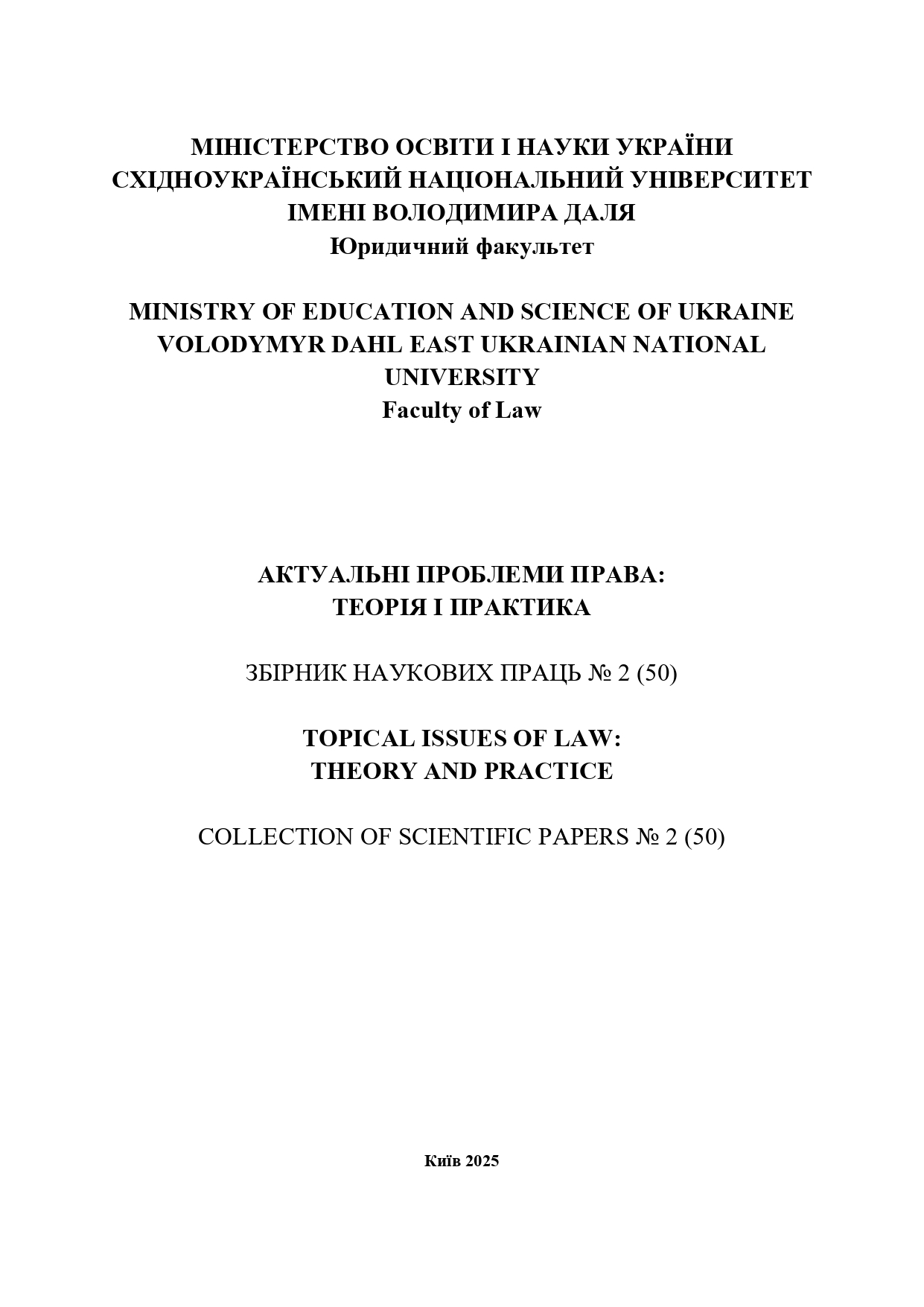PROHIBITION OF DISCRIMINATION IN THE SYSTEM OF GUARANTEES OF ENSURING THE EMPLOYEE'S RIGHT TO DECENT WORK
DOI:
https://doi.org/10.33216/2218-5461/2025-50-2-146-157Abstract
The article analyzes the prohibition of
discrimination in terms of its role in the system of
guarantees ensuring the right of employees to decent
work. The relevance of the chosen topic is due to the
fact that the prohibition of discrimination is one of the
key guarantees for the realization of the right to work,
including the right of employees to decent work and
proper treatment by employers. At the same time, in
practice, compliance with the prohibition of
discrimination has a number of problems, in
particular: the complexity of establishing and proving
facts of discrimination; misunderstanding of the
content and limits of the prohibition of discrimination;
lack of established judicial practice in considering
cases of discrimination, etc. This makes it important
to study the role of the prohibition of discrimination in
the system of guarantees for the right of employees to
decent work.
The purpose of this scientific article is to clarify
the role of the prohibition of discrimination in the
system of guarantees ensuring the right of employees
to decent work, which will allow identifying gaps in
legal regulation and law enforcement, determining the
optimal ways to overcome them, and contributing to
the strengthening of labor relations in accordance
with international standards.
It is justified that the general prohibition of
discrimination established at the international and
national levels is one of the fundamental guarantees
of human rights and the principle of equality, which,
in turn, is a prerequisite for the sustainable
development of a democratic society based on the rule
of law and humanism. In the field of labor relations,
the realization of an individual's right to work largely
depends on compliance with the principle of equality
and the prohibition of discrimination.
It is argued that in the system of guarantees
ensuring the right of an employee to decent work, the
prohibition of discrimination plays a system-forming
role, ensuring, on the one hand, the subjective right of
the employee to equal and decent treatment by the
employer, and on the other hand, the implementation
of the concept of decent work as a common good,
rather than a privilege of certain categories of
employees.
At the same time, the prohibition of
discrimination in connection with the employee's right
to decent work does not acquire any specificity,
remaining one of the general principles of the right to
work as such. Violation of the prohibition of
discrimination in the field of labor will mean a
violation of both the right to decent work and the right
to work in general in the system of constitutional
rights and freedoms of the individual. At the same
time, the prohibition of discrimination has certain
limits, which are determined by the balance of
legitimate interests of the employee, employer, and
society.
It was concluded that systematic counteraction to discrimination in the field of labor requires further development of organizational and legal mechanisms focused on clarification, mediation, and establishing positive communication between employees and employers. Trade unions should play an important role in this.
Keywords: prohibition of discrimination, right to work, right to decent work, employee's right to decent treatment by the employer, legal guarantees, employee, employer, labor rights, labor obligations.

